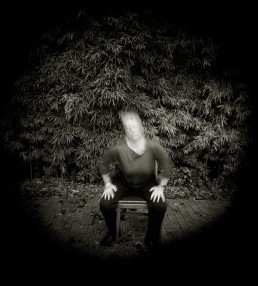S3: Fine Line - Episode 25 - Bonnie

Episode Information
Fine Line: Mental Health/Mental Illness – Episode 25 – Bonnie
[Intro Music]
Narrator: Welcome to Season three Fine Line narrative histories about mental health and mental illness, a traveling exhibition and weekly podcast edited and hosted by Michael Nye, supported by Kronkosky Charitable Foundation. May you find insight and understanding in these voices. Episode 25, Bonnie.
Bonnie: Suicide is a very devastating thought, and you ask God to forgive you, but you just can’t do it. You can’t make it anymore. I tried to hang myself three times. I’ve driven off bridges. I’ve jumped off bridges. I tried to drown myself. I tried to electrocute myself. I tried to burn myself. It’s never been a question of me wanting to die. It’s been a question of God not wanting me yet. My name is Bonnie and, uh, right now, I, I live by myself with my cat. My doctor and my case manager are very important to me because they, they’re my lifelines. They, uh, really give me a reason for going on because I, I feel like I want to make them proud of me. I li I lived with 13 families as a foster child from birth until the age of 16. The first mother figure, I can’t visualize, but I can hear her and she would say, you who, Bonnie? Everything is in a haze with her, but I can feel the warmth. I can smell, uh, like cookies, baking and the woods and the forest around the home and the rest of the mothers. Well, it was a, a different time. There wasn’t any love. You, you went there to do housework or farm work or whatever. You were like an object. Another an outsider always.
When I was 16, I graduated high school and I went to college. And then in the summer, I went to work in upstate New York in a country club, and that’s where I met my future husband. And he walked in the door and he says, well, there’s my next wife. And he embarrassed me almost to tears, and I just went running out into the kitchen area. But, uh, he kinda wooed me and, uh, everything. And I married him. My husband was wealthy. I seemed to adapt to it very well, you know, just doing things that I had never dreamed of doing in my life, traveling and having so much fun with him. And I felt for the first time in my life, I felt a lot of security during my pregnancy. I was, uh, just on the top of the world. I was very, very happy.
I was very healthy. I had, I was just full of energy. And, um, I thought everything that I ever dreamed about in life was mine. And then, uh, I had my daughter and I had what they called the postpartum psychosis. I, I just remember like being floating through the whole scenario, I guess depressed. And I just, uh, didn’t sleep. I remember wandering around and, uh, sitting in the chair and, and rocking my daughter. That’s the last thing I remember. And somewhere I got it in my head that I had her in a suitcase. Now, whether I did or not, I don’t know. When I finally went to the hospital, I didn’t really know that I went to the hospital. I just came to one day there sitting on a bench with a rai jacket on tied to a bench. And nothing after that hospitalization was ever the same.
I don’t understand how depression can just slip over you so suddenly, it’s very, very fast. When it happens to me, nothing leads up to it. It just, it’s like a, a big cloud comes, I don’t know if it was months or weeks or what, but it was desolate. It was horrible. You can’t cry. You have no feelings about anything. You don’t feel fear, you don’t feel. It’s like you’re just there and you’re in this little box. That’s all there is, you and the rocking chair, and nothing else matters. I don’t know if there’s anybody that’s going to remember me, but I like to think that I, I’m a kind person, maybe a little nutsy, cuckoo, but kind. And I try to be considerate of people that, that’s about it. I, I, I, I don’t think I’ll be remembered by anyone.
[Outro Music]
Host: Mental illness is not caused by a weakness of character. Mental illness is treatable. I don’t know where mental health ends and mental illness begins. This podcast and traveling exhibition is about the recognition of our vulnerabilities and the fragility of control. These stories are not intended to summarize or explain anyone’s life. There are so many ways a voice can turn. Anyone that has been to these deep places knows something important and valuable. What is forgotten is lost. These narratives are about remembering about time and light taking apart and putting back together. They’re also about losing and finding. Bonnie said, I don’t think anyone will ever remember me. Bonnie, we do remember you, your voice, your courage, and your presence. Thank you for enlarging and illuminating our lives. May something in Bonnie’s story stay with you. I’m Michael Nye. You can go to my website, michaelnye.org/podcast for Bonnie’s portrait and transcript. Thank you so much for listening.
